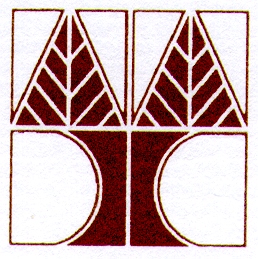Software Product Lines and Software Ecosystems (SPLSEco) Track
To consider families of software-intensive systems as a conceptual whole rather than treating each system individually has been suggested a long time ago [1]. Based on this idea, Software Product Lines (SPLs) (e.g., with systematic reuse and actively managed sets of features) promise considerable benefits when creating and maintaining software-intensive systems such as increased productivity and reduced time-to-market [2]. SPLs have been successfully applied in many industrial domains.
Despite these promising results many challenges remain, in particular when SPLs are applied in industrial projects of realistic scale and complexity, when SPLs are part of larger systems-of-systems or when SPLs expand beyond organizational boundaries and transition to software ecosystems [3].
The track on Software Product Lines and Software Ecosystems at SEAA 2016 aims at bringing together researchers and practitioners to discuss, address, and overcome current issues in Software Product Line Engineering and Software Ecosystems. By combining perspectives from both research and industrial practice we aim to address scientific problems of practical relevance and realistic complexity.
TOPICS
SPLSEco welcomes original unpublished work related to Software Product Lines, Software Ecosystems as well as System-of-Systems and Ultra-large Scale Systems. In particular, we encourage research papers based on industrial experience and empirical studies. Topics include, but are not limited to:
- Requirements engineering for SPLs and Software Ecosystems
- Architectural approaches to SPLs and Software Ecosystems
- Modelling SPLs and Software Ecosystems
- Collaborative and distributed SPLs, Software Ecosystems - Multi-stakeholder, multi-disciplinary environments
- Business and economic aspects of SPLs and Software Ecosystems
- Contractual and legal matters in SPLs and Software Ecosystems
- Development processes for SPLs and Software Ecosystems - Continuous integration and deployment
- Scalability and complexity of SPLs and Software Ecosystems - Handling computationally complex problems, automated techniques
- Handing of Non-functional Properties and software quality in SPLs and Software Ecosystems
- Migration towards systematic approaches, reverse engineering and mining of legacy systems
- Evolution and change
- Variability-aware techniques, e.g., for verification
- Runtime-variability, dynamic SPLs, variability in adaptive systems
- Integration of heterogeneous approaches, languages and techniques
- Multi product lines
- Agile and lean approaches
- Overcoming cognitive complexity, visualization, interactive techniques
[1] David Lorge Parnas. On the Design and Development of Program Families. IEEE Trans. Software Eng. (TSE) 2(1):1-9 (1976)
[2] Paul C. Clements and Linda M. Northrop: Software Product Line. Practices and Patterns. Boston, MA: Addison-Wesley (2002)
[3] Jan Bosch: From software product lines to software ecosystems. SPLC 2009:111-119
PROGRAM COMMITTEE (partial)
Mathieu Acher, FranceDavid Benavides, Spain
Thorsten Berger, Sweden
Jan Bosch, Sweden
Philippe Collet, France
Massimiliano Di Penta, Italy
Samuel Fricker, Sweden
Slinger Jansen, The Netherlands
Tommi Mikkonen, Finland
Amir Molzam Sharifloo, Germany
Christian Prehofer, Germany
Andre Santos, Portugal
Klaus Schmid, Germany
Sandro Schulze, Germany
Maurice H. Ter Beek, Italy
Frank van der Linden, The Netherlands

